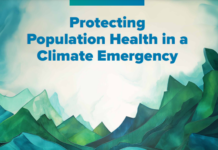THE Province said on Tuesday that it is developing B.C.’s first Watershed Security Strategy and Fund. Climate change and extreme weather events are strengthening the call for protection and restoration of B.C.’s watersheds to ensure healthy ecosystems support communities with secure access to clean water.
The first step is to explore key themes, including governance, climate change, ecosystems and sources of drinking water, as well as community and economic stability, through the release of a discussion paper for feedback.
The Province is developing the strategy with Indigenous Peoples and in collaboration with other levels of government.
“Climate change and cumulative human impacts are threatening the health of the watersheds we depend on for clean drinking water, growing our food, habitat for aquatic species and healthy local economies,” said George Heyman, Minister of Environment and Climate Change Strategy. “We need to ensure healthy watersheds for strong communities and ecological health, so we are collaborating with Indigenous Peoples and all British Columbians to build a legacy of healthy rivers, lakes, streams and aquifers for our children and grandchildren.”
A discussion paper has been developed that outlines key strategic themes for safeguarding B.C.’s watersheds and builds on the important work many communities are doing to protect and restore their local watersheds. People are now being invited to provide input about the ideas and options presented in the discussion paper.
“Watershed security is the common theme that links the top issues of our time and is about much more than just environmental problems. Watershed security includes reconciliation, health, and economic imperatives,” said Oliver Brandes, co-director of the University of Victoria’s POLIS Project on Ecological Governance. “Without watershed security, the costs of climate and flood impacts grow, droughts endure, wildfires intensify, salmon die, forests fail, soil is lost, food cannot grow, local economies falter and conflict mounts. We fully support the Province to advance watershed security and the urgent need for a watershed security fund.”
In addition to feedback generated from the discussion paper, the strategy will align with several government commitments, including development of coastal and wild salmon strategies, work on drinking water, modernized land-use planning, and the Climate Preparedness and Adaptation Strategy. The ministries of Agriculture, Food and Fisheries, and Forests, Lands, Natural Resource Operations and Rural Development also have key roles in managing water resources.
“Healthy watersheds mean healthy communities and a robust environment,” said Fin Donnelly, Parliamentary Secretary for Fisheries and Aquaculture. “By restoring rivers and wetlands, we are creating spawning grounds for salmon and other key freshwater species, and improving the health of B.C.’s aquatic ecosystems that so many species, humans included, rely on.”
Nathan Cullen, Minister of State for Lands and Natural Resource Operations, said: “All British Columbians care deeply about our environment and the health of our watersheds, and we will give everyone a voice in the management of those watersheds. This is an incredibly important opportunity for people to share their ideas for the creation of B.C.’s Watershed Security Strategy. Have your voice heard about our environment’s future.”
The deadline for public comment on the discussion paper is March 18 at 4 p.m. (Pacific Time). During this time, there will also be direct engagement with key stakeholders and partners, as well as local and federal governments. Feedback will inform a draft strategy to be released in the fall, with additional opportunity for input following its release. The Province expects to release the final strategy in 2023.
“This year, we’ve seen extreme weather ranging from droughts and wildfires to floods and debris flows. These events underscore the critical importance of water management in the province,” said Sarah Nathan, B.C. provincial operations manager, Ducks Unlimited Canada. “Because of their capacity to absorb and store excess water, wetlands play a key role in mitigating extreme weather events. Ducks Unlimited Canada looks forward to sharing our science about wetlands and watersheds, and engaging with the ministry to help keep our communities safe and healthy.”
To share your thoughts about development of the strategy, visit:
https://www2.gov.bc.ca/gov/
Written submissions can also be made by email: livingwatersmart@gov.bc.ca
Learn More:
To learn more about B.C.’s Water Sustainability Act, visit: engage.gov.bc.ca/













